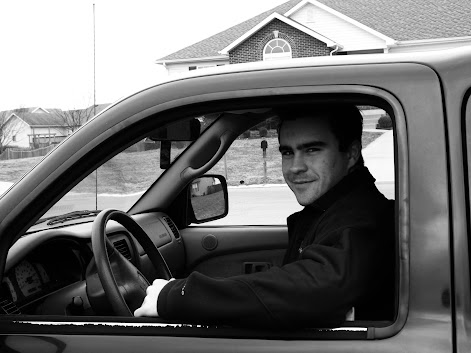One of my fondest memories is my dad taking me on drives in his 1998 Toyota Tacoma. He blasted Tim McGraw, Alan Jackson, Garth Brooks, and numerous other country artists that now hold a mythical status. He told me why he liked country music and what he feels like defines a great artist. “You have to be a good storyteller. Tim and Alan tell stories to accompany their songs and their music comes to life,” he’d repeatedly say as we drove through the Ozarks, Hawaiian Islands, California brush, and Kentucky hills. Blindly, I ignored his assertions.
When I finally inherited the Tacoma, I would go on to discover my own storytellers: John Mayer, Mumford and Sons, Bob Dylan, Jack Johnson, Nickelback (love them or hate them, they were hot up until 2012). I have learned the lyrics to many of their albums, whether they be the right or wrong lyrics, through countless hours of driving during my high school junior year and into summer. I look back at this time with fondness. How many more albums might I have learned if I did not crash that Tacoma? That act robbed me of discovery. I was sidelined with a sense of teenage vulnerability that often accompanies a traumatic event. Life was now within eyesight. Ready to be taken away and I entered a world where I could see trauma among my peers. Could they see it within me?
Orville Peck’s Bronco is nothing short of a truly fantastic country album. After listening to this album, I feel a connection to my childhood, a robbed summer, and a sense of vulnerability I seldom feel in life. That’s not to say the album is downer - it has downer tracks. But the emotional life present in the album is nothing short of operatic. You have the making of a cowboy in this album: the highs, the lows, the rough rides, and tales of aura that add to the allure of a star.
If you went back and looked at the old outlaws of country music, chances are you wouldn’t see Orville Peck. Which is why in this genre, as the man he is, he is everything the genre espouses. A gay outlaw who hides who he is in a world which might seek to remove him from it. But, Peck’s lyrical brevity is unmatched. At times blunt and at other times beautifully poetic, the album would have existed in my Tacoma on a warm, clear summer’s day and a cold, dark winter’s night.
Right away, “Daytona Sand” moves you through a sense of what could have been. Connecting you back to a memory of a lover and the promises made. Lyrics like, “I’ve been around long enough to know you can’t trust a man,” punch home the essence of this album. Love, longing, and begrudgingly accepted loss.
“The Curse of the Blackened Eye” is a song about how an abusive relationship captures the blunt haunting of living in a traumatic state. “I sat around last year wishing so many times that I would die,” is juxtaposed with the reflective, “It ain’t the letting go it’s more about the things that you take with.” Who we are can never cease to exist but who we choose to become is often the greatest battle of them all. More awesomely, the music video features Norman Reedus – a fan favorite of everyone who still watched the Walking Dead.
“Hexie Mountains” perfectly captures the making of what and who a modern outlaw may be. “Take me far enough to say we’re gone,” captures the simplicity of escaping. While, “Wouldn’t it be swell if I could things off my chest, ‘Maybe you’d learn to live inside your own head’,” captures the difficulty of accepting yourself. Where and what are your Hexie Mountains? Where and what are you escaping/coping with because you were persecuted for being who you are? And, weirdly, why are you also looking to return to it?
These are a couple examples of the lyrical simplistic beauty present in the album. Yet, the entire album’s strength comes from Peck’s songwriting muscle. The coping of a hateful world when you know your soul is beautiful. And, when you look at all the old songs from outlaws you love, it’s the lyrical simplicity around an allusive figure that always hit the hardest. This is what makes them an outlaw – they’re ability to convey the heartache and trauma head on like an old western hero would. But truly, the best part may be Peck admitting he is a sad boy in “C’mon Baby, Cry.”
As I wrap up this album, I implore you to listen to it. Maybe the beauty of the album to me has been its ability to connect me back to my childhood. Finally understanding what my dad meant and all of those years ago as I sat in the passenger seat of the Tacoma that would eventually become my own. Maybe I’ve explored my own “Hexie Mountains.” Perhaps this album will serve as capsule of emotions when looking back at my quarter life crisis (or whatever era of life you may be in). But more importantly, it might just be how I connect with you when we (to whomever may be reading this) finally catch up.
 |
| Aaron and the Tacoma, circa 2014 |
________________________________________________
If we get 3 comments or 5 shares of this article from supporters like you, Botts will cover a song off of this album and post it for you viewers. Either that, or Slone has admit he reads Botts’ articles. Do it now – it takes 5 seconds!
- Botts


Comments
Post a Comment
Thanks for yelling at us!